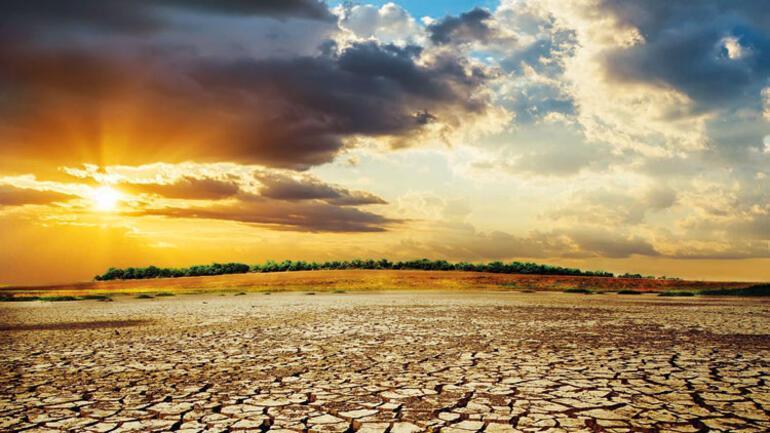
The severity and spatial impact of drought on Turkey will increase and the country will face a more intense drought cycle within 100 years, according to a report submitted to the Climate Research Commission of the Turkish Parliament.
Prepared by İhsan Çiçek, an academic from Ankara University, the report underlines that 47 million people in Turkey have been at risk of drought since April.
Çiçek also focused on possible floods and other kinds of natural disasters on the axis of global climate change.
According to the report, which stated that 776,000 people will be affected by floods and storms by 2100, the cost of these natural disasters to the public may reach 16.5 billion euros.
Determining that drought will trigger migrations, Çiçek emphasized the necessity of getting rid of the perception that drought is a danger specific to Istanbul, the country’s most populated city with over 16 million people.
“The water level in the dams had dropped to 20 percent [at the beginning of the year] and the whole media was talking about drought. Now this level has reached 80 percent, but nobody talks,” Çiçek said, adding that the danger of drought is everywhere.
“Drought is the most insidious natural disaster,” he noted.
Water levels in the dams supplying Istanbul was at just 19.1 percent on Jan. 8, when the city’s water supplies were at alarmingly low levels, but increased by almost 60 percent in a couple of months.
Çiçek also warned that migrations would increase with the drought and said that he predicted that migrations from agricultural hubs to other regions would begin within the country.
The possible effects of climate change on tourism were also evaluated in another report prepared by Mehmet Somuncu, also an academic from Ankara University, and presented to the commission.
According to the report, the effect of high temperatures and drought on tourism will be related to the change of seasonality, heat stress on tourists, cooling costs, changes in the plant-wildlife and insect population, and the spread of infectious diseases.
The report noted that there will be insufficient snow in winter sports destinations, an increase in the costs of making artificial snow and a shorter winter sports season will be seen with decreasing snowfall.
In the report, the Mediterranean region is among the hotspots expected to be impacted by the rising temperatures in the mid-and end-21st century.
With the rise of the sea level, the facilities and settlements around the Bodrum Peninsula and Gökova Bay in the Aegean region will be adversely affected.
Impacts such as more frequent and large forest fires, intense floods and the damage of these disasters to tourism infrastructure are also among the risk assessments.